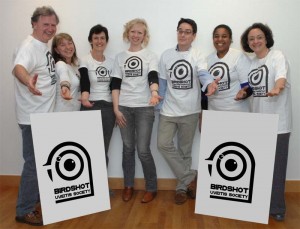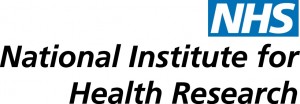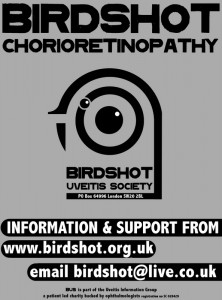WHAT IS RARE DISEASE DAY?
Rare Disease Day is an annual, awareness-raising event co-ordinated by EURODIS (the European Rare Disease Association which is the voice of rare disease patients across Europe) at a national and international level.
WHEN IS RARE DISEASE DAY?
Rare Disease Day is observed on the last day of February. Therefore the 2010 Rare Disease Day is Sunday 28th February. However, many events occur well before this date, and many continue well after this date. Awareness raising events take place in each participating country.
WHO CAN TAKE PART?
Individuals, patients, patient organisations, health professionals, researchers, drug developers, public health authorities – the more, the better!
WHY IS RARE DISEASE DAY IMPORTANT?
Rare Disease Day is the perfect occasion to inform or remind people that rare diseases need to be paid special attention to, because:
Rare diseases are life-threatening or chronically debilitating diseases with a low prevalence and a high level of complexity. Patients with very rare diseases and their families are particularly isolated and vulnerable. The life expectancy of rare disease patients is often significantly reduced and many have disabilities that become a source of discrimination and reduce or destroy educational, professional or social opportunities.
The rare disease patient is the orphan of health systems, often without diagnosis, without treatment, without research, therefore often without quality of life.
The lack of specific health policies and the scarcity of expertise translate into delayed appropriate diagnosis and difficulty of access to care. The national health care services for diagnosis, treatment and care of rare disease patients differ significantly in terms of their availability and quality. European citizens have unequal access to health care services and to orphan drugs. UK citizens also have unequal access to health care systems as each health region may have different expertise, understanding, funding situations and approaches.
Research on rare diseases is scarce.
WHAT IS THE DEFINITION OF A RARE DISEASE?
The definition varies from country to country. For example:
- European definition (including in the UK) of rare diseases: “life-threatening or chronically debilitating diseases which are of such low prevalence (less than 1 in 2,000 or 5 or less in 10,000) that special combined efforts are needed to address them.” . Diseases that are statistically rare, but not also life-threatening, chronically debilitating, or adequately treated, are excluded from this definition.
- US definition: “any disease or condition that affects less than 200,000 persons in the United States.”
- Japanese definition: any disease that affects fewer than 50,000 patients in Japan, or about 1 in 1,500 people.
WHAT IS THE DIFFERENCE BETWEEN INCIDENCE AND PREVALENCE?
Prevalence is the number of people living with a disease, at a given moment. Incidence is the number of new diagnoses in a given year. There are between 6,000 and 8,000 rare diseases.
HOW MANY RARE DISEASES ARE THERE?
The Rare Disease Coalition UK quotes over 3.5 million people with rare diseases in UK and 30 million in Europe. They also state that 1 in 17 people in the UK will develop a rare condition at some point in their life.
In 2008 the population of the UK was recorded as 61.3 million. We estimate that there are between 400 and 600 people with Birdshot in the UK. Therefore there is approximately 1 in 150,000 people in the UK with Birdshot.
What is an orphan disease? It is a disease that is so rare that it has not attracted funding for the development of treatments. Birdshot fits in to this definition.
What is the UK view on rare diseases and orphan diseases? In 1998 the European Union recognized rare disorders as a public health issue faced by 5-8% of the population across Europe. It was agreed that a pan European approach would improve the situation of all those affected by rare disorders. Hence a Programme of Community Action on Rare Disorders (1999-2003) was produced and funded for this purpose, designed to:
- Promote the development of a single and coherent information network on rare diseases.
- Promote trans-national collaboration and networking between support groups and organisations.
- Contribute to the training of professionals in order to improve early detection, recognition, intervention and prevention.
- Support the monitoring of rare disorders in the EU Member States and promote the networking of professionals.
BIRDSHOT STATISTICS
Birdshot is considered to be a rare disease under the UK/European definition, and we, with Birdshot, know all too well of the struggles and battles to get appropriate diagnosis, treatment, understanding of the disease and research into more appropriate medication or prevention of the disease.
With Birdshot, we do not know either the incidence or the prevalence.
Initial research we (Rea and Annie) undertook shows that there are at least 300 people in the UK with Birdshot (the prevalence), but we suspect that this is under-reported, and it is important for us to undertake epidemiological research to establish the incidence and prevalence, before we can move on to research to determine what causes the disease and how we can treat or prevent it into the future. We also believe the incidence of Birdshot is increasing, either because it is being more readily diagnosed, or because more people are getting it. We also note that the disease seems to affect both males and females (it used to be believed that it was biased towards females) and that it seems to be affecting younger people in their 20s and 30s as well as people in their 40s and 50s and later. It used to be believed that the mean age of onset was early 50s.
ORGANISATIONS WORKING WITH RARE DISEASES
- Rare Disease UK is an alliance of key stakeholders brought together to develop strategic planning for rare diseases in the UK. It is a joint initiative of the UK alliance of patient organisations with a membership of over 130 charities which support children, families and individuals affected by genetic disorders and others, in response to unmet health care needs of hundreds and thousands of families who currently struggle to get access to integrated care and support from the NHS. It will help ensure the efficient use of scarce expertise, and target the use of health care resources to maximise the benefits for all UK patients with rare diseases.
- EURODIS is the European Organisation for Rare Disorders, a coalition of patient organisations geared toward improving the quality of life for those affected by rare disorders in Europe. It was created in 1996, to carry the voice of as many organisations as possible at a European wide level,to co-ordinate actions and to facilitate exchanges of information.
- EPPOSI is an EU patient-led partnership between patients’ organisations, science and industry, founded in 1994 for the exchange of information and discussion of policies in EU human healthcare. EPPOSI’s primary mission is to establish a strong European alliance of patients’ organisations, academic science and industry jointly working on health care policies towards treatment and prevention of serious diseases.
- Orphanet is a database of information on rare diseases and orphan drugs for all countries. Its aim is to contribute to the improvement of the diagnosis, care and treatment of patients with rare diseases. Orphanet includes a Professional Encyclopaedia, which is expert-authored and peer-reviewed, a Patient Encyclopaedia and a Directory of Expert Services. This Directory includes information on relevant clinics, clinical laboratories, research activities and patient organisations.
- Sigma-Tau is a pharmaceutical company that develops drugs/medication specifically for people with certain rare/orphan diseases.
WHAT DO PEOPLE WITH A RARE DISEASE FACE?
Nearly all patients with rare diseases face common problems including:
o Lack of access to correct diagnosis
o Delays in diagnosis
o Lack of information about the disease
o Lack of scientific knowledge of the disease
o No appropriate treatment for the condition
o Significant social consequences
o Lack of appropriate quality healthcare
o Inequities and difficulties in access to treatment and care
We, with Birdshot have experienced many of these problems and BUS strongly believes that people with Birdshot (and other rare diseases) should be receiving at least as good treatment as people with diseases that are not classed as rare or orphan.
WHAT IS BUS AND UIG DOING TO SUPPORT RARE DISEASE DAY?
UIG, through Rea Mattocks (chair of UIG and co-founder of BUS) sits on one of the working groups set up by the Rare Disease UK coalition. The working groups are developing a proposed strategy for the treatment of rare diseases in the UK.
Rea and Annie have been interviewed about their stories – these stories should be appearing in the national and local media over the next few weeks – we will keep you posted about when and where they are likely to appear.
UIG and BUS have been attending the All Party Parliamentary Groups of Eye Health and Rare Diseases to make sure that our views are taken into account in relation to governmental policy.
BUS has been busy setting up an annual Birdshot conference which will further raise the profile.
BUS has offered support to clinicians dealing with Birdshot to help them find their way round the complex health care systems, in the event that patients are turned down for various medication regimes.
If you can think of any other ways of getting our message across, please e mail us at Birdshot@live.co.uk


